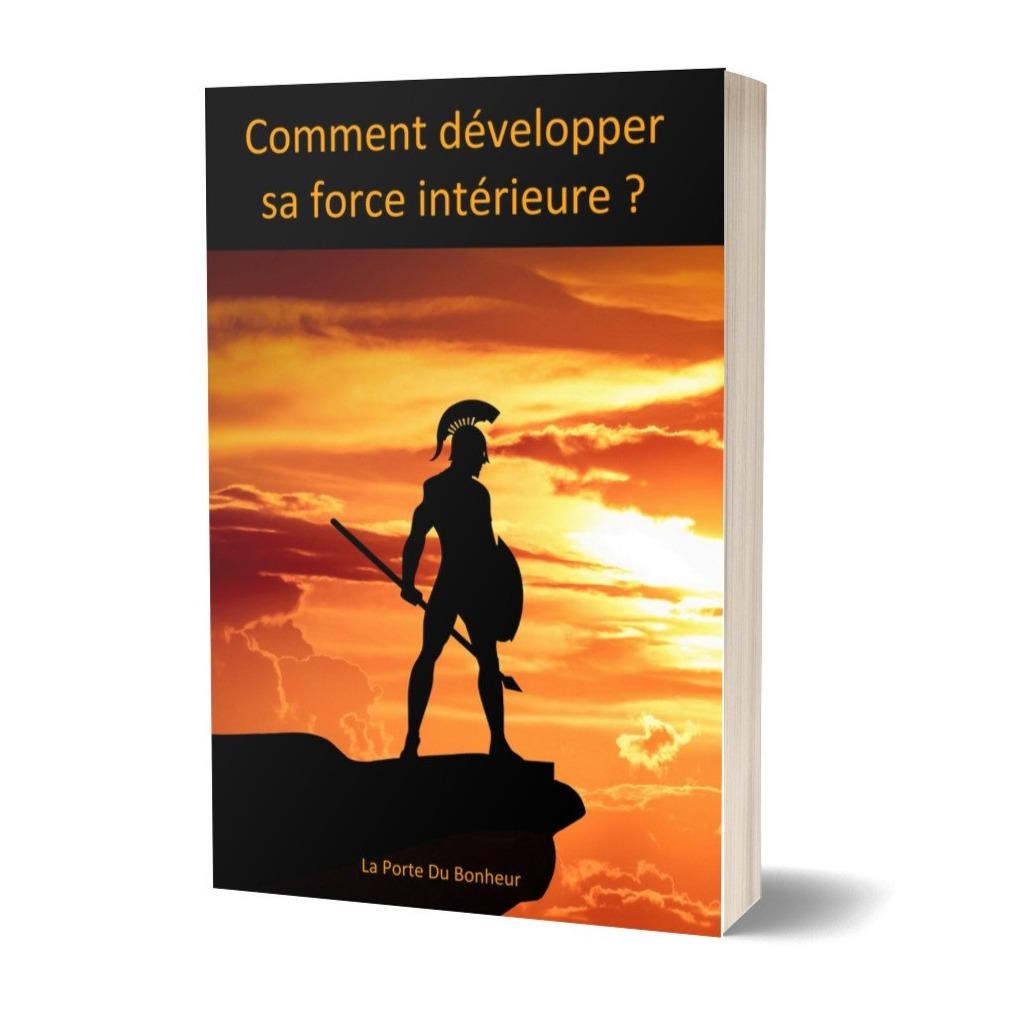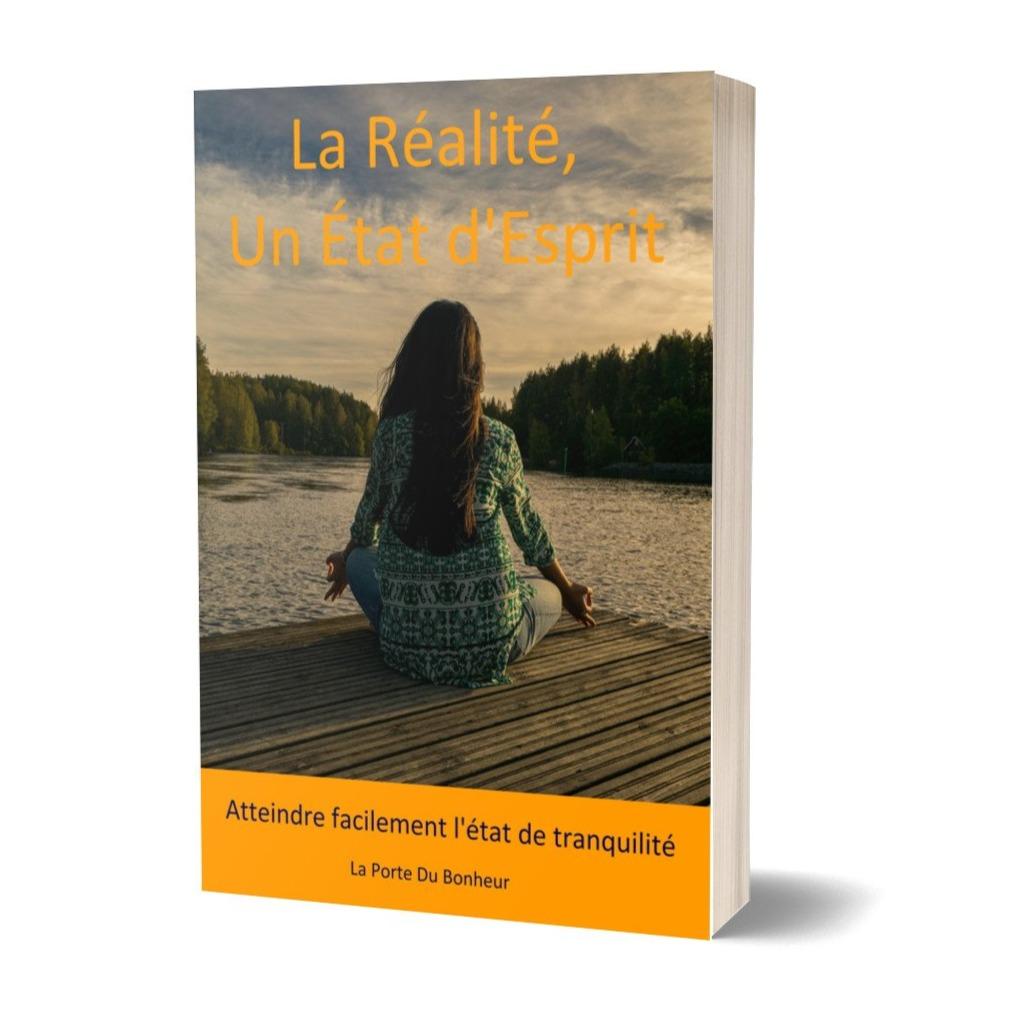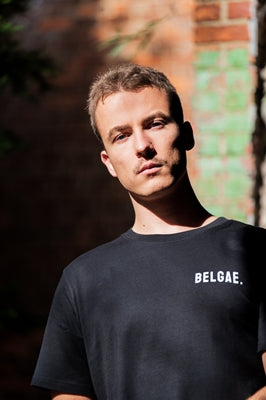Holistic Medicine: Definition, Practitioners, Principles
Holistic medicine is often described as a particular form of healing that considers the person as a whole (body, mind and emotions), in a quest for health and well-being.
According to the principles of holistic medicine, optimal health can indeed be achieved by applying a few simple rules.
Balance in our personal life, better level of vitality, improved mood, healing of many ailments: the promises of holistic medicine are numerous.
Together, we are going to take an interest in this subject to try to disentangle the truth from the falsehood and thus better understand what this much-maligned complementary medicine consists of.
Contents :
Brief definition of holistic medicine
The main principles of this alternative medicine
The philosophy of the holistic medicine practitioner

Brief definition of holistic medicine
Etymologically, the word "holistic" comes from "holism", a particular philosophical movement that emerged during the 20th century.
Holism actually views everything as part of a larger whole. This is precisely the definition given by the famous Doctissimo site (which you will find here).
Yes: atoms form molecules, molecules form cells, cells form living beings, and so on.
When we apply this to the human being, we can say that a man is made up of his body, his mind and his emotions (and, for some believers, his soul).
Holistic medicine therefore seeks to take all these facets into account and to “harmonize” them, to balance them in the search for health.
A holistic approach to care thus emphasizes the need to take into account what is happening throughout our being if we want to achieve more general well-being.
Moreover, each facet of man, even if it does not directly show major concern, is necessarily affected by the state of others, and can therefore require care (or at least attention) when particular symptoms occur at any level.
This vision of things becomes really interesting when we see that, throughout time, traditional medicines have also made this link between the body and the mind, attempting to act on one to heal the other.
The main principles of this alternative medicine
Holistic medicine is therefore something quite simple but based on a counter-intuitive concept for many of us.
We have in fact learned from our earliest childhood to “compartmentalize” each part of man and to no longer see him as a whole.
If we have a problem with our vision, very few will think to look at diet or stress management. Even fewer will look at the side of the mind and parasitic thoughts.
In short, certain principles arise from this vision of man as a total entity.
Here are the ones most often cited by specialists:
- If we want to experience true health, we must have good physical, mental and spiritual health.
- A suitable lifestyle keeps many ailments at bay. Prevention is therefore at least as important as care.
- All people have powerful healing powers within them. This idea is found in particular in this personal development book that we have written which will teach you how to develop your inner strength to better face the challenges of life.
- The environment in which we live (from a social or economic point of view for example) has a real impact on our health.
- Barring serious problems (typically, an inherited genetic disease), each person is responsible for their own health and well-being.
- To understand and treat a particular illness, we must understand the person who suffers it in their entirety.
- This goes without saying: treatment does not amount to calming the symptoms but rather to eliminating the cause.
- The patient is a person, not just a patient.
- Healing often emerges from a harmonious doctor-patient setting.
- Illness is generally an expression of disturbances throughout the body.
- Most of the time, there is more than one way to solve a problem.

The philosophy of the holistic medicine practitioner
Practitioners of holistic medicine therefore take the person as a whole and see through them different interrelated parts.
Additionally, if people suffer from imbalances (of any kind) in their lives, it can harm their overall health.
To best treat the people who come to ask for advice, the practitioner can therefore use all the tools at his disposal.
This can range from completely conventional medications to gentle or alternative forms of medicine.
Often, he will also give general advice aimed at improving individuals' lives. We can therefore see the holistic medicine practitioner as someone wearing many hats.
He is a caregiver, a therapist, yes… but also a coach, an advisor and, normally, a trusted friend.
Yes, a friend!
A key thing to understand about holistic medicine is that it is based on love.
So, a person the patient trusts will make a good practitioner. Likewise, a practitioner who knows how to provide all the necessary support around him will see better results in his patients.

Concretely, what are the principles used?
Holistic medicine can have a number of important benefits from a health-seeking perspective.
Many of us live in a way that is too stressful, with schedules that are unsuitable for human beings and with constant psychological and social pressure.
All of this creates many ailments related to fatigue and exhaustion. We're talking about migraines, ulcers and depression (to name just a few).
We have actually encountered so many people suffering from these types of problems that we have even written a short training course (which you will find here) which will teach you how to free your mind through relaxation and self-hypnosis.
In short, in this context, taking the time to act on each disordered part of our life is undoubtedly a better long-term solution than many others proposed.
But concretely, how will a practitioner of holistic medicine go about restoring our health?
We will try to provide some answers by listing the main modes of action of this type of therapy.
Constant interactions with our environment
We have already mentioned it but, yes, our relationship with our environment does have a major impact on every aspect of us.
This goes without saying, but regular exposure to certain pollutants can make us sick.
However, we must understand what is hidden behind this term “pollutant”.
While certain chemical substances will clog our bodies and cause us to develop illnesses, there are other types of attacks, undoubtedly more insidious, that we do not necessarily think about.
Constant noise, for example, promotes stress and overwork, while toxic relationships (this word means what it means) can plunge us into significant states of psychological distress.
By acting at these different levels, a notable improvement in health can often be noted.
Before we can act, however, we must first understand the situation in which we live. This is precisely the aim of this digital book centered on our relationship to our environment which will help you better understand your environment through a fair analysis.
The connection between body, mind and spirit
If you've read this article from the beginning, there's no need to repeat it: holistic medicine works on all the facets that make up an individual, and sees them as an interconnected whole.
Practitioners of this type of medicine will therefore be able to provide their patients with advice that is surprising to say the least.
Sometimes sports or yoga can resolve internal tension, while certain positive thoughts can ward off back pain.
This may seem surprising, but if we understand the principles that we have just discovered together, we also understand the mechanisms that may be hidden behind this type of recommendation.
Integrative care
The concept of integrative care consists of using both holistic type treatments, coupled with a more conventional practice of medicine.
Often, this works well and allows patients to benefit from both a medicine that is still solid, recognized and powerful, as well as a gentler, more human approach and undoubtedly easier to integrate into their daily life.
Some hospitals also choose to include certain types of so-called complementary medicine in their range of care in order to allow patients to benefit from the treatment that best suits them.

A little gift for you
If you have read this article to the end, you are the cream of the crop, the elite of the elite.
To thank you for the attention you gave us, here is a little gift: BIBLIO50.
This code allows you to have access to all our training and books at half price, without any other conditions.
In short, let us continue without further delay with our study of holistic medicine.
History of holistic medicine
The principles of holistic medicine have been known and applied since ancient times.
Moreover, and despite what we might think, they have not undergone too many modifications before reaching us.
This idea that the most effective way to heal is to treat the person as a whole rather than just treating an illness, parts of the body or symptoms... is therefore quite old!
Holism and herbalism: very ancient roots
Long before modern science and technology, primitive healers already understood that, yes, health and well-being depended largely on a person's spiritual state.
From Europeans to Chinese, including Arabs and Native Americans: all were already practicing holistic medicine in some of its forms.
Between herbalism (the science of healing with plants) and religious rites, healers of the past had more than one trick up their sleeve to treat and cure.
The father of medicine also followed these principles!
The father of modern medicine, Hippocrates, emphasized in his work the great importance of using natural methods to treat various diseases.
Despite the association that has been made between Hippocrates and upright, rigorous and above all ethical medicine, you should know that this wise man also believed in the self-healing capacities of the body and in the impacts that lifestyle could have on health. of his patients and disciples in general.
Emergence of the modern holistic movement
The modern holistic movement as such emerged in the late 1960s.
While people thought that modern medicine focused too much on drugs with sometimes serious side effects to treat, and on techniques considered potentially dangerous to diagnose (such as the use of X-rays), some doctors and health professionals health have come together with the idea of practicing differently.
Given the need (well justified) to have doctors in whom we can trust, this title can only be carried after long studies and recognition of the right to practice received from the order doctors.
The practice of holistic medicine today
Nowadays, more and more people are concerned about their health and quality of life.
Amid the dozens of types of complementary medicine that exist, it can sometimes be difficult to make the right choice.
It is precisely in this context that the principles of holistic medicine can help us!
By following them, we know that, whatever the means used, we should get closer to health.
However, very few doctors are interested in this practice to such an extent that practitioners specializing in holism are in excessive demand.

Main other types of alternative medicine
Typically, traditional doctors treat the symptoms. They provide medical solutions to alleviate an illness.
In many cases, it is undeniable that it is effective, that it really cures illnesses and above all that it saves lives.
We are clearly not here to question that.
However, in certain cases, other types of gentler care may be very suitable.
Despite what some skeptics say, alternative medicines have proven themselves. The effects they have on health are even attested by numerous scientific studies.
Yes, the benefits of these practices are numerous! For example, here is this article from a health blog which will present six of these virtues and particularities to you.
In short, to broaden your range of possibilities, we will now list some of the most popular and effective forms of alternative medicine.
Osteopathy
An osteopath is a licensed doctor (this title is obtained after very serious studies) who treats health problems through manipulation of the muscular and skeletal systems.
This type of treatment is often chosen by people who suffer from back pain or mild joint problems.
Ayurveda
We know the traditional medicine practiced in India as Ayurveda.
Stemming from Hindu philosophy, this age-old practice works in particular on balancing the chakras, purifying the aura and regulating various “moods”.
Through this vision of the different parts of man, Ayurveda is close in many points to holistic medicine.
The word “Ayurveda” actually translates to “knowledge of life”. This tells us a lot about this practice.
Traditional Chinese medicine
What we have just said also applies to traditional Chinese medicine.
Its greatest particularity is undoubtedly the notion of Chi.
For Chinese masters of the healing arts, man is traversed by various types of vital energy which, if unbalanced, can be the source of health problems.
Acupuncture
Acupuncture is also a form of treatment of Chinese origin.
Very well known in the West for his “spectacular” side, the acupuncture practitioner uses very fine needles that he inserts into his patient's body, or rather into his meridians.
In the same perspective of Chi circulating in man, Chinese tradition teaches us the presence of energy centers and the “paths” connecting them. (This is often compared to the blood system.)
reiki
Reiki is a Japanese technique of healing and relaxation through energy work.
We also find here an idea of invisible energy present in the human body, on which the reiki practitioner works.
By the use of specific tools or by simple imposition of humans, it will redirect, relieve and concentrate energies to, again, tend towards the harmonization of the individual.
Music therapy
The basic principle of music therapy (or sound healing) is the concept of resonance.
Apparently, everything in the universe vibrates at a particular frequency continuously. The same would go for human beings.
If the different parts of our body do not have the same vibrational frequency, then we are said to be “dissonant”.
In this case, therapists will be able to expose us to sounds at very specific frequencies which will act on us and allow us to somehow retune ourselves.
Naturopathy
The foundations of naturopathy are based on the importance of a healthy diet, clean and fresh water and healthy exposure to the Sun.
In short, naturopathy uses nature and the simplest things it has to offer to heal people.
This type of care is therefore particularly close to holistic medicine through the notion of education: one of the bases of naturopathy will be to teach people to live a serene life, close to nature and as balanced as possible.
Homeopathy
One of the great goals of homeopathy is to trigger self-healing processes within the individual.
In fact, the challenge here is to say that the body has within itself all the healing capacities it needs. So, illnesses would only be signals that he sends to us to tell us that we are imposing things on him that are bad for him.
Another characteristic of this type of alternative medicine is the use of so-called minimum doses.
If our goal is to initiate self-healing, the medication is then not used to treat but to serve as a “trigger”. The dose administered then does not matter much.
Aromatherapy
Aromatherapy involves the use of essential oils and other natural products to increase our levels of well-being and health.
It has been demonstrated more than once that the various essential oils in the pharmacopoeia have measurable effects.
Easily available commercially, essential oils can be real remedies.
Be careful not to overuse them: some should never be used without the prior advice of a competent therapist.
Bach's elixirs
Bach flower essences are made from wild flower and plant extracts.
Based on the principle of infusion (the steps in the manufacture of elixirs are numerous, but infusion is one of the main ones), all the curative properties, the healing powers and the vibrations of the plants are thus released..
Professor Bach's system contains 38 different elixirs, each helping to treat a particular negative emotion.
This curative system is in fact based on the idea that all bodily ailments arise first and foremost from an affliction of the mind.
Chiropractic
Chiropractors base their practice on manipulating the spine in order to act on the rest of our body.
Most of the time, a chiropractic session will aim to reduce some pain and improve mobility. Some specialists also offer rehabilitation options.
In the end, few people know it, but this alternative medicine can treat many other parts of the body than the back.
Chiropractic claims that the balance of the entire body is governed by that of the back, and that a healthy spine is the assurance of a healthy body.
Light therapy
Light therapy is a form of alternative medicine aimed at treating certain psychological disorders through exposure to light.
Particularly renowned in the fight against seasonal depression, light therapy is often used as a supplement by specialists in the official health system.
Many neurologists and psychiatrists sometimes advise their patients to practice this form of alternative medicine in addition to other therapeutic treatments.
Very serious studies have in fact demonstrated without great difficulty that exposure to certain types of light activates the secretion of a whole bunch of hormones in the brain (notably those linked to sleep or happiness).
And dozens more!
If none of what we have just presented speaks to you, here is a Wikipedia article which lists the types of existing alternative medicines.
Even if some “niche” practices are missing, you will find there the vast majority of treatment methods that you may encounter one day or another.
In any case, to conclude, we hope that your reading was enjoyable and that you learned something new!
Books featured in this article:

How to Develop your Inner Strength?
See more
Free your Mind!
See more
Reality, a State of Mind
See more


